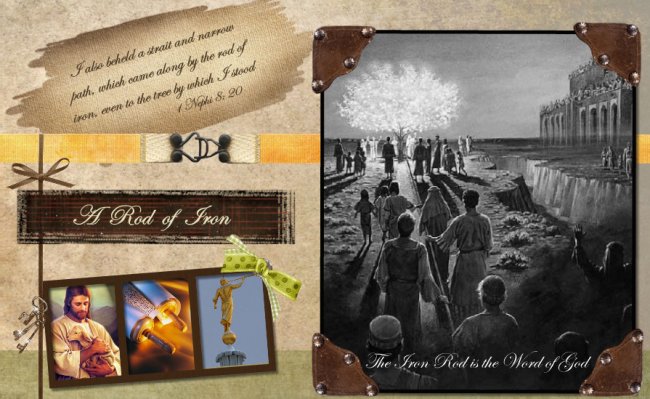Read Alma 43
Read Alma 44
We switch gears a little and the record starts to tell us about the wars and contentions among the Nephites and Lamanites. We met for the first time Captain Moroni at age 25. A very patriotic and religious man who was true to all his convictions. He had compassion but was willing to carry out the "work of death" to preserve his people, their freedoms, and their religion.
A Lamanite by the name of Zarahemnah masses an army to overtake the Nephites and enslave them. He strategy is to use Nephite dissenters such as the Amelekites, Zoramites, and the descendants of King Noah's priests as the captains of his armies. This was because the Nephite dissenters were more blood thirsty when it came to killing their former brothers.
The purposes for the Lamanites to fight the Nephites
8 For behold, his designs were to stir up the Lamanites to anger against the Nephites; this he did that he might usurp great power over them, and also that he might gain power over the Nephites by bringing them into bondage.
The purposes for the Nephites to fight the Lamanites
9 And now the design of the Nephites was to support their lands, and their houses, and their wives, and their children, that they might preserve them from the hands of their enemies; and also that they might preserve their rights and their privileges, yea, and also their liberty, that they might worship God according to their desires.
10 For they knew that if they should fall into the hands of the Lamanites, that whosoever should worship God in spirit and in truth, the true and the living God, the Lamanites would destroy.
11 Yea, and they also knew the extreme hatred of the Lamanites towards their brethren, who were the people of Anti-Nephi-Lehi, who were called the people of Ammon—and they would not take up arms, yea, they had entered into a covenant and they would not break it—therefore, if they should fall into the hands of the Lamanites they would be destroyed.
Things of note
- Lamanites heavily outnumbered the Nephites
- Nephites wore armor
- Lamanites were naked except for a loin cloth
- Nephites will rely on the Lord and his prophet, Alma for strength and guidance
- Lamanites rely on their own strength and hatred and bloodlust
Below is a map that shows the armies' movements with notes following

click to view a larger image in another window
Lamanite movements marked in red numerals.
Nephite movements marked in blue numerals.
Lamanites
1. Start gathering in the Land of Jershon
2. Lamanites move to Antionum, the land of the Zoramites, to finish gathering with the added strength of the dissenters. Lamanites do not want to face the Nephite army that has gathered in the southern borders of Jershon
3. Lamanites try to hide their tactics and move through the wilderness, marching toward Manti as it is practically defenseless to attack.
Nephites
1. Gather in the southern parts of the Land of Jershon to battle with the Lamanites. When Lamanites flee, Moroni sends messengers to Alma for prophetic guidance and sends spies into the wilderness.
2. Travels to Manti and hides his armies on the opposite side (the west side) of the Sidon River.
The armies converge at the River Sidon. Moroni sends a portion of his army out as the Lamanites are in the middle of the River. The portion is led by Lehi. The battles ensues, the Lamanites fear the Nephites and their armor. The Lamanites fight fiercely at one point, however, Moroni's and Lehi's troops end up encircling the Lamanites.
Moroni calls for a halt to the bloodshed and offers Zarahemnah a way to leave peaceably:
53 Therefore when Zerahemnah saw the men of Lehi on the east of the river Sidon, and the armies of Moroni on the west of the river Sidon, that they were encircled about by the Nephites, they were struck with terror.
54 Now Moroni, when he saw their terror, commanded his men that they should stop shedding their blood.
This takes us to Alma 44.
The terms that Captain Moroni offer for peace require that the Lamanites lay down their weapons at the feet of Moroni and take an oath of peace failure to take the oath comes with a warning of continued fighting:
5 And now, Zerahemnah, I command you, in the name of that all-powerful God, who has strengthened our arms that we have gained power over you, by our faith, by our religion, and by our rites of worship, and by our church, and by the sacred support which we owe to our wives and our children, by that liberty which binds us to our lands and our country; yea, and also by the maintenance of the sacred word of God, to which we owe all our happiness; and by all that is most dear unto us—
6 Yea, and this is not all; I command you by all the desires which ye have for life, that ye deliver up your weapons of war unto us, and we will seek not your blood, but we will spare your lives, if ye will go your way and come not again to war against us.
7 And now, if ye do not this, behold, ye are in our hands, and I will command my men that they shall fall upon you, and inflict the wounds of death in your bodies, that ye may become extinct; and then we will see who shall have power over this people; yea, we will see who shall be brought into bondage.
Moroni was clearly a man of spiritual and physical strength.
Zarahemah's response was to offer his weapons to Moroni but he refused to take the oath as he wasn't willing to keep the oath.
Moroni responds by returning the weapons to Zarahemnah and says, "Behold, we will end the conflict." Moroni wasn't afraid to get the job done. He was fighting for peace and freedom and for his family and religion. If he wasn't able to get them to take the oath then we was going to wipe them out so they wouldn't return.
Zarahemnah is angry and takes his sword back and tries to slay Moroni but another Nephite stops the attack, breaking Zarahemnah's sword and cutting off the scalp of Zarahemnah. Zarahemnah retreats back into the safety of his own troops and some of the Lamanites take the oath while their leaders scalp is waved in front of them on the tip of a sword.
Those who took the oath are free to leave and fighting continues until the Lamanites become so defeated that Zarahemnah and the remaining Lamanites take up the oath and drop their weapons as well.
The dead on both sides were too numnerous to count or bury and were dumped into the River Sidon and washed out to the sea.
Why do you think their are so many accounts of war in the Book of Mormon?





